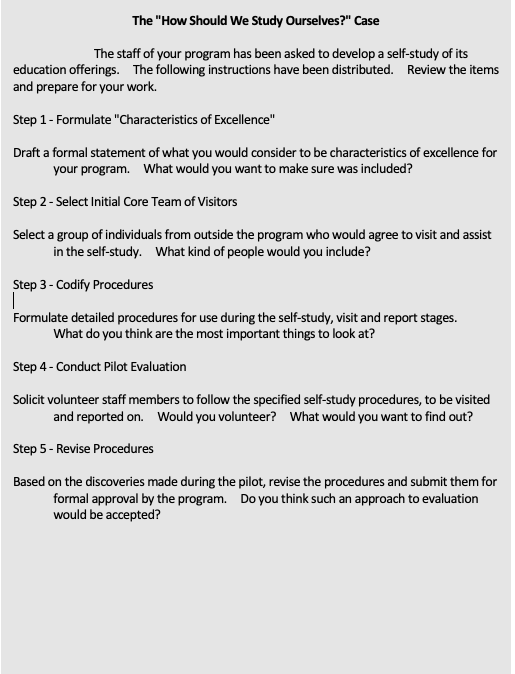The literacy litany has become all too familiar and all too much taken for granted. Prevailing notions concerning “literacy” and “illiteracy” rely on assumptions that the lack of literacy precludes self-sufficiency, results in low self-esteem, costs society untold sums of money and promotes social irresponsibility. (I have put the two key words in quotation marks since, as I suggest below, our assumptions concerning what they mean profoundly affect our ways of thinking about the issues involved. I will leave the quotation marks out in the rest of the article only for reasons of stylistic convenience.)
In any case, the commonsensical way of discussing the issue associates illiteracy with unemployment, poor nutrition and health, crime and welfare dependency, unproductive and inadequate work, teen pregnancy and drug abuse. This assortment is then re-interpreted as an enormous social problem produced by illiteracy. It can get pretty silly as when one newspaper report suggested that illiteracy was the “harbinger of a class society” in the United States – as if we have been living in a socialist utopia all these years. On occasion, we are also reminded that literacy is good for you, that it can open doors and expand options.
Either way, it is far too simple an explanation for complex social realities. But it is the one that frames most of the appeals to individuals to enroll in literacy programs, as well as the appeals to the public and government for support of literacy education. In short, it is argued that people “need” literacy in order to avert social disorder and to participate fully in social and economic life.
However, most potential participants are quite aware of the many other personal and social factors that shape their circumstances and decision-making. Several literacy researchers have documented the unwillingness of many to participate in literacy programs. (See Fingeret and Quigley.) And the statistical reports from across the country reveal that relatively few individuals participate for any length of time. (See Dieckhoff or, for that matter, the most recent report produced by the Literacy Assistance Center on the 1988-1989 program year.) I would suggest that the lack of literacy is correctly understood as being less important than a host of other factors.
But, at the same time, individuals are likely to say that they think literacy is important and that they intend to participate. In short, there is a discrepancy between what people say and what people do. How come? Too often, verbal statements are taken at face value and we ignore the powerful evidence of what people do and don’t do. For example, only a few of us are usually prepared to say that voting is not important, but obviously many millions of people let their abstention from the polls do the talking for them. It is a question of judgment and interpretation – do people not vote because registration and voting are difficult or because they are practically convinced that it is not worth their time? In a similar vein, are high school students dropping out or are they boycotting the schools? (See Susan Anderson.) In the case of literacy programs, do people come and go quickly because they have too many problems or because they “read” the world of literacy programs as having little to offer them? I think you probably have guessed my answers.
I don’t intend to be simplistic about this. I realize that most people are usually pretty ambivalent about a lot of things and that it’s very seldom a completely clear cut issue. However, I would like to suggest that most thinking on these kinds of issues exaggerates the importance of what people say, examines what people do and don’t do superficially and then discounts the possibility of very much rationality in the actions people take. Frankly, I want to tip the balance the other way.
If we do that, I think we might be able to develop a more nuanced view of the significance of literacy, which might have greater resonance for potential participants. Such a view would acknowledge that undeveloped literacy skills can create obstacles to participation in various activities and can frustrate the achievement of individual goals. It would also acknowledge that there are social consequences of limited literacy – for example, the limitation of direct access to extensive information probably makes it somewhat easier for politicians and other advertisers to sell you things you neither want nor need. But, it would not dare to suggest that a lack of literacy has nearly as much to do with the predicament of Black folks as do long-standing patterns of institutionalized and personal racism. Nor would it fall prey to the kind of thinking that uses enhanced literacy as a pleasant sounding substitute for speed-ups at work.
This more nuanced view would be best developed in the context of a reinterpretation of “need.” Usually, when it is argued that someone “needs” literacy, it is assumed that literacy is essential to the achievement of some more or less important goal – such as getting a better job, helping children with school work, and so forth.
But, there is another way of understanding “need.” Human beings, alone among the animals, develop themselves over the course of their lives. Although there have been and continue to be many different notions of what such development can or should be, I think it fair to say that many of us wish to realize ourselves more fully as human beings. In fact, we “need” to do so. But, this process of self-realization does not begin from scratch with each new person born into the world. Human development has a fundamentally historical character to it. To some extent, our development proceeds from the legacy left us by those who live before us. But, of course, how that legacy is interpreted can lead to many varied ways of understanding the past and appreciating human discovery, invention and culture. We should be reluctant to accept the usual explanations of these matters. As Enzenberger once wrote about literacy, for example, we should remember that literacy was invented by illiterates. And furthermore, the accomplishments of literates are dependent on the labor of many millions who usually have not had much of an opportunity to become literate themselves.
Full human development, as such, requires freedom. Therefore, it must primarily be a matter of self-development. This need not be interpreted as a suggestion of narcissistic self-absorption. I don’t think I’m talking about a more improved version of the “me” decade. Instead, such development would have to take place in the context of a mutual community of freely associated individuals. The relationship between the individual and the community would become a matter of considerable importance. People would develop themselves not so they could offer themselves or their children more profitably on the marketplace, but rather that they could participate more fully in the life of the community.
But, today, human development, including the enhancement of literacy, is subordinated to the incorporation of individual human personalities within the existing set of dominant social relations. Those relations are, as often as not, rotten ones. Remarkably, however, that profoundly limited development produces challenges to the existing set of relationships. When possible, people use schools, workplaces, communities, even families, to carve out space for their own free development, Needless to say, that development is distorted by what goes on outside. But, nonetheless, people use that space to learn how to survive in dangerous circumstances and to cultivate a distinctive way of understanding their worlds. Unfortunately, much that passes for literacy education is an attempt to replace the good sense that individuals develop with a common sense that ignores it. As Piven and Cloward argued some time ago:
…mass literacy inhibits the capacity of people to develop relatively autonomous interpretations of their particular social reality, for ordinary people do not produce their truths in literate form. (See also, Gramsci.)
Contrary to Richard Venezsky, who argues that there is no evidence of social control in efforts to promote literacy, I would suggest that there is no need to seek out a conspiracy in order to demonstrate that literacy education has social control dimensions. Even well-meaning literacy teachers can play a part.
If people choose not to participate, either by not enrolling at all or by attending briefly or sporadically, then efforts to induce or coerce that participation are, in fact, efforts to control people’s behavior and/or to control their ways of interpreting their experiences. This occurs, in part, whether or not people actually participate for the individual who does not is encouraged to think that his or her difficulties are the consequences of their own choices. And if people’s actual literacy capacities are obscured and discounted by the use of standardized tests, then efforts to insist that those tests be administered are, in fact, attempts to control how people think of literacy and of their own worth as literate beings. What else does it mean when a student thinks of him or herself as a fifth grade reader?
Definitional questions concerning literacy, therefore, assume some importance because those definitions shape the ways in which we assess capacities, design curriculum and provide instruction. The predominant definitional and curricular vision is one that still sees the acts of reading and writing as primarily cognitive processes of instilling meaning into or extracting meaning from print. The skills involved are imagined to be identical for all. But, as Denny Taylor has recently written, the individual process of becoming literate and the subsequent uses of literacy are as distinctive as fingerprints. Each of us creates literacy anew. But, much that goes on in literacy education serves to make that act of creation more difficult, more painful and, ultimately, less fulfilling than it should be.
What I think happens is that a certain way of giving meaning to and taking meaning from print and a particular way of talking about it becomes taken for granted – commonsensical. As a result, it becomes very difficult to challenge. I am intentionally echoing the debates concerning standards and cultural literacy which, at bottom, privilege a certain way of knowing. It is not as if the defenders of “Western values” such as Allan Bloom and Diane Ravitch don’t know something about the contributions of various cultures to world civilization but rather that they want those contributions to be discussed in a particular way. Any challenge to that way are reinterpreted as being assaults on knowledge itself. It’s tempting to write them off as racists, but I think that would miss the mark. They are so absorbed within the confines of their own logic that they really can see no other. Their common sense precludes anyone else’s good sense.
I hope that we can avoid the same fate. I would imagine that most readers of this newsletter are familiar with the notion that standardized tests serve as gatekeeping devices. By extension, we who work in literacy often serve as gatekeepers – even though we try hard to give people the key. The unasked questions concern what we are keeping out and whether what’s inside is worth keeping.
References
Susan Anderson, “Eyes on the Prize, Not the People,” The Nation. October 16, 1989.
Antonio Gramsci, Prison Notebooks. New York: International Publishers, 1971.
Frances Fox Piven and Richard Cloward, “Social Policy and the Formation of Political Consciousness,” Political Power and Social Theory. Volume 1, 117-152.
B. Allan Quigley, “Learning to Work with Them: Analyzing Nonparticipation in Adult Basic Education Through Resistance Theory,” Adult Literacy and Basic Education, 11, 2, 1987, 63-71.
Denny Taylor, “Towards a Unified Theory of Literacy Learning and Instructional Practices,” Phi Delta Kappan. November, 1989.
Richard Venezky, “Gathering Up, Looking Ahead,” in Venezky, Wagner & Ciliberti (Eds.), Toward Defining Literacy. Newark: International Reading Association, 1990.



Leave a Reply